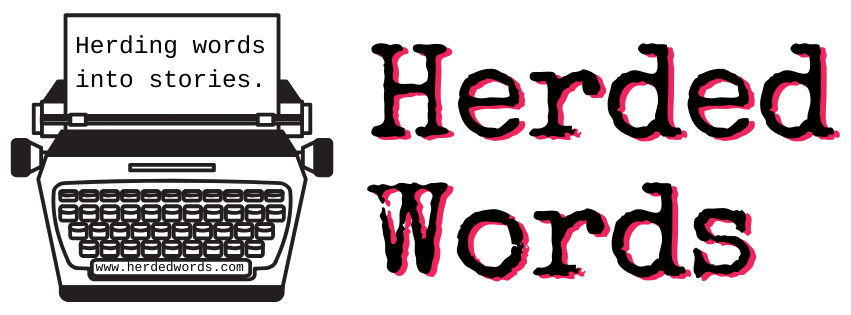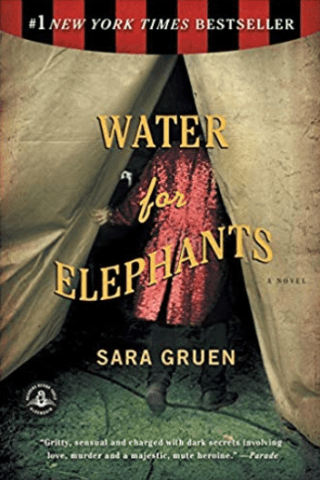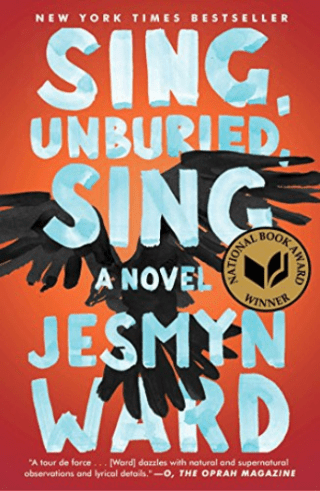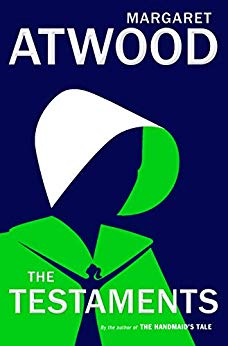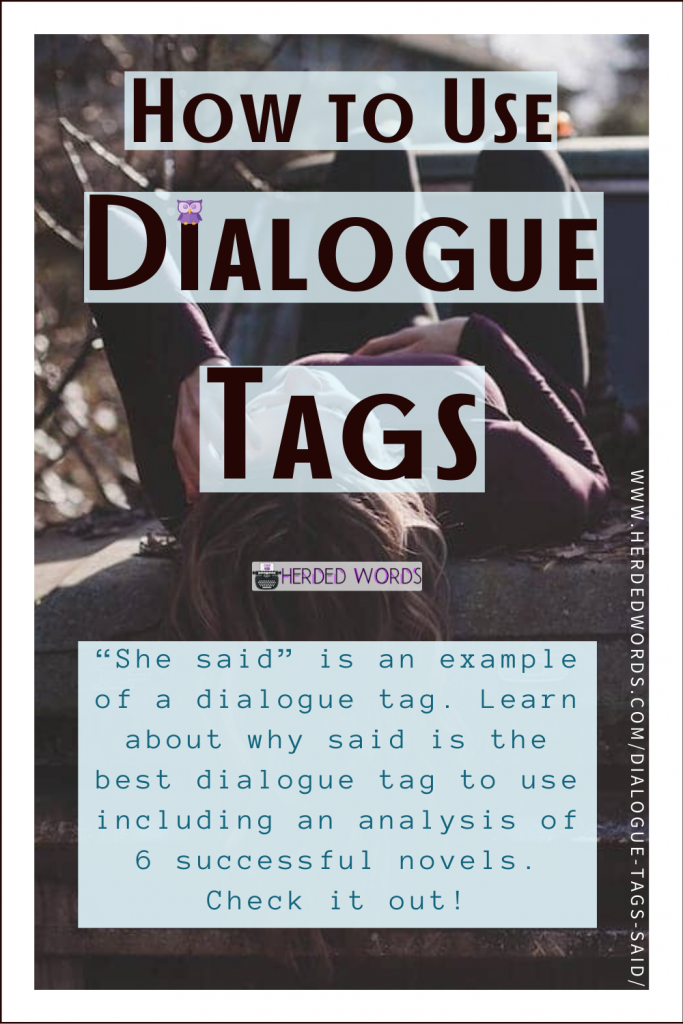
Herdedwords.com uses affiliate links. This means we receive a commission on the sale of certain items. This is at NO additional cost to you. Visit the policies page to learn more.
Dialogue can be intimidating to new and experienced writers. It feels hard. But it should be fun!
Table of Contents
Write Your Dialogue
First things first, you should just write your dialogue!
Don’t worry about the rules and guidelines or anything, just write it.
Use any and all of the words that you want.
Over time (as in, after you’ve written and edited a whole bunch of dialogue), you’ll improve. But it’s easier to edit words after they’re written.
Dialogue Writing Rules
These rules will really help improve your dialogue.
Remember, like with all writing “rules”, they’re more like guidelines. If you’re going to break them, make sure you understand the value it adds to the reader!
#1: Cut any words and sentences that aren’t necessary.
You want your dialogue to be tight, short, to the point, brief, you get the idea! Dialogue that’s unnecessarily long will have less of an impact.
Go ahead. Cut those words. Cut anything that isn’t going to develop your story (characters, plot, subplot).
Also, don’t give whole speeches. If someone is giving a speech, show just a sample. 3 to 4 sentences is the maximum you should aim for.
#2: Read it aloud for realism.
This is one of the easiest ways to check your dialogue. Read it out loud and see how it sounds. Not sure? Record yourself and listen back!
You want your dialogue to be realistic (but with a point). However, written dialogue is a lot more focused than regular conversation which means it can (sometimes) sound a bit dramatic or cheesy. Some extra drama (or cheese) is totally okay BUT it still has to sound like something someone could say.
Make sure you’re not cringing while reading/listening.
#3: Add some randomness or misdirection.
This is a bit counter to rule #1, but it will really help with rule #2.
Most conversations aren’t straightforward transactional affairs. Instead, we often get off-topic, don’t listen, and more. Build things like that into your dialogue.
You should be doing this for a reason, such as demonstrating a personality trait, lack of cooperation, or something else.
#4: Develop Characters (and their Relationships)
Characters should have their own voices. They shouldn’t all sound the same.
This is something you can develop with actions.
“This is my,” she paused, “boyfriend.”
Compared to
“This is my boyfriend!” She said with a grin.
It seems like woman one is feeling something a little bit different than woman two.
It’s also something you can develop with word choices. The use of mom versus mother, maybe versus perhaps, yeah versus yup versus yes, and many more. Most people (and characters) will choose one and use it pretty consistently.
Unique voices are something you can develop with sentence-style. Some characters will talk and talk and talk. Some characters will speak as little as possible. Choose a style of speech (short choppy sentences, heavy adjectives, monosyllables, etc) and keep it consistent for your character.
Furthermore, make sure to develop the way a character interacts with others. For example, the way I speak with my boyfriend is different than how I speak with my mother.
#5: Arrive Late & Leave Early
Skip the small talk. Arrive to conversations late and leave them as soon as possible.
Yes, in real life we have greetings and chit chat about the weather and other mundane topics. Unless those serve a purpose in your novel (such as a character is stalling), skip them.
Think about that person you know who just goes on and on and on about stuff you don’t care about. That’s how your readers feel about small talk in dialogue.
#6: Don’t Overname Your Characters
This links in with #2. It’s not realistic to use names frequently.
Don’t believe me? Head to a public place and eavesdrop on some conversations – I bet you won’t learn most people’s names.
Cut the use of names from your dialogue unless it’s the first reference to a person who isn’t there. You probably won’t need to add many (or any) back.
How to Write Dialogue (the technical how-to):
- When to start a new paragraph?
Every time the speaker changes, start a new paragraph - When to indent paragraphs?
Indent new paragraphs, except the first line of a chapter or scene. - Where does punctuation go?
Inside the quotation marks. - Character quoting someone in their dialogue?
Use single quotes to show it. - One speaker covering several paragraphs?
Don’t use an end quotation mark, just beginning ones.
How to Use Dialogue Tags?
A dialogue tag indicates who spoke and how. Examples of dialogue tags are:
- She said
- He asked
- The goblin wondered
- The maid whispered
Check out Dialogue Tags – Why Said is Best for everything you need to know about using dialogue tags.

Examples of Dialogue
Let’s examine some modern bestsellers and award-winners. How do they follow (or break) the rules of dialogue?
VENDETTA IN DEATH
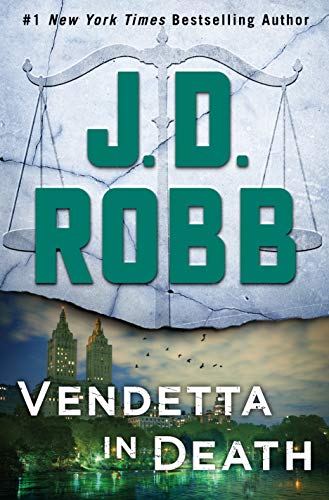
VENDETTA IN DEATH, published in 2019, is a romantic suspense novel by JD Robb. It is book 49 in the In Death series. JD Robb is a pseudonym for Nora Roberts.
VENDETTA IN DEATH spent 1 week at #1 on the NYT Bestseller List. Between 2009 and 2018, Nora Roberts spent a total of 29 weeks at #1 on the NYT Bestseller list (16 weeks as Nora Roberts + 13 weeks as JD Robb).
Chapter 6
“Even if I could get past the door,” Peabody commented, “I couldn’t afford the cover price in a club like this, much less a drink.”
“Lucky you don’t have to shell out either then.” Eve held her badge to the security scanner.
| Characters Involved | Eve & Peabody |
| Names Used | Eve, Peabody |
| Start & End | This is it, their entire conversation. This is the start of a new chapter so the use of names would be required in the first lines. |
| Wordiness | Peabody’s comment is an efficient way to tell us about the club (it’s high-end, expensive). |
| Development (characters/relationships) | This is consistent with both their personalities. Peabody is impressed and intimidated by luxury. Eve doesn’t care. |
| Off-Topic (randomness/misdirection) | None |
| Dialogue Tags | commented x1 action/description x1 |
Chapter 7
“Good evening, Thaddeus.” She made her voice a gravelly purr. “I’m Angelique.”
She offered her hand, and when he took it, smiling—oh so charming—she pumped the drug into his palm from the mini syringe in hers.
“Please, come in.”
“I’d love to.” She watched his face go slack. “But I have a car waiting. Come with me. I have such an amazing evening planned for us.”
“With you?” he said, biddable.
“Close the door, Thaddeus.”
He obeyed, walked to the car with her. Inside, as the droid drove back uptown, she handed Thaddeus the wine she’d already dosed. “Drink up! It’s your favorite red.”
“Thank you. I feel a bit strange.”
“The wine will help.” She tipped it up, toward his mouth.
When his eyes drooped, she couldn’t help herself. She drew him to her, kissed his mouth, arched under his hand when he stroked her breast.
And cradled him when the drug took him under.
| Characters Involved | “Angelique” & Thaddeus |
| Names Used | Angelique x1 Thaddeus x3 |
| Start & End | They’re meeting for the first time. The names are an effective way of letting the reader know who’s involved in this scene. |
| Wordiness | Some of the dialogue could be cut to be more efficient without detracting from the plot. The third usage of the name Thaddeus is optional. It makes it clear who she is handing the wine to (although very few people would be confused if him was used instead). The last two lines of dialogue (one for each character) could be cut for efficiency sake. |
| Development (characters/relationships) | None in the dialogue. The only real character development comes from the last two paragraphs, once the dialogue is over. |
| Off-Topic (randomness/misdirection) | None |
| Dialogue Tags | action x4 none x said x1 |
Since I suggested a few changes, here’s a rewrite (focused only on dialogue).
“Good evening, Thaddeus.” She made her voice a gravelly purr. “I’m Angelique.”
She offered her hand, and when he took it, smiling—oh so charming—she pumped the drug into his palm from the mini syringe in hers.“Please, come in.”
“I’d love to. I have such an amazing evening planned for us.” She watched his face go slack. “But I have a car waiting. Come with me. I have such an amazing evening planned for us.”
“With you?” he said, biddable.
“Close the door, Thaddeus.”
He obeyed, walked to the car with her. Inside, as the droid drove back uptown, she handed Thaddeus him the wine she’d already dosed as the droid drove back uptown. “Drink up! It’s your favorite red.”
“Thank you. I feel a bit strange.”
“The wine will help.” She tipped it up, toward his mouth.
When his eyes drooped, she couldn’t help herself. She drew him to her, kissed his mouth, arched under his hand when he stroked her breast.
And cradled him when the drug took him under.
WATER FOR ELEPHANTS
WATER FOR ELEPHANTS, published in 2010, is a contemporary novel by Sara Gruen. The movie was released in 2011.
WATER FOR ELEPHANTS spent 8 weeks at #1 on the NYT Bestseller List. It has sold over 10 million copies worldwide.
Chapter Ten
“MARLENA? YOU IN THERE?” I say, rapping on the door of their stateroom.
“Jacob?” calls a small voice from inside.
“Yes,” I say.
“Come in.”
She’s standing by one of the open windows, looking toward the front of the train. As I enter, she turns her head. Her eyes are wide, her face drained of blood.
“Oh, Jacob . . .” Her voice is wavering. She’s on the verge of tears.
“What is it? What’s the matter?” I say, crossing the room.
| Characters Involved | Marlena & Jacob |
| Names Used | Marlena x1 Jacob x2 |
| Start & End | The dialogue starts with the characters naming each other. It’s a brief exchange. |
| Wordiness | no |
| Development (characters/relationships) | Jacob shows some concern for Marlena but it’s nothing groundbreaking. |
| Off-Topic (randomness/misdirection) | none |
| Dialogue Tags | Say x3 Call x1 None x1 Action x1 |
Chapter Eleven
“Hey, Doc,” says Pete. “Otis thinks one of the giraffes has a cold. You wanna take a look?”
“Sure,” I say.
“Come on, Bobo,” says Pete, reaching for the chimp.
The chimp’s hairy arms and legs tighten around me.
“Come on now,” I say, trying to pluck his arms free. “I’ll come back.”
Bobo moves not a muscle.
“Come on now,” I say.
Nothing.
“All right. One last hug and that’s it,” I say, pressing my face against his dark fur.
| Characters Involved | Pete, Jacob, & Bobo (the chimp) |
| Names Used | Doc x1 (refers to Jacob) Bobo x2 Pete x2 Otis x1 |
| Start & End | This is a quick transition scene. There’s no preamble, Pete arrives without announcement and gets to the point. |
| Wordiness | This is a bit wordy. Every piece of dialogue has a tag, which is unnecessary, and there are some action descriptions that are also unnecessary. |
| Development (characters/relationships) | This scene helps demonstrate Jacob’s relationship with the animals. |
| Off-Topic (randomness/misdirection) | none |
| Dialogue Tags | Say x6 |
Let’s rewrite the dialogue to be a bit more efficient.
“Hey, Doc,” says Pete. “Otis thinks one of the giraffes has a cold. You wanna take a look?”
“Sure.” I say.
“Come on, Bobo.” says Pete, reaching reaches for the chimp.
The chimp’s hairy arms and legs tighten around me.
“Come on now,” I say, trying try to pluck his arms free. “I’ll come back.”
Bobo moves not a muscle.“Come on now,” I say.Nothing.
“All right. One last hug and that’s it,” I say, pressing press my face against his dark fur.
SING, UNBURIED, SING
SING, UNBURIED, SING, published in 2017, is a fiction novel by Jesmyn Ward.
SING, UNBURIED, SING won the 2017 National Book Award for Fiction.
SING, UNBURIED, SING dialogue passages contain large amounts of description and action. In some cases, I’ve removed some of the lengthy non-dialogue parts as indicated by: <…>
Chapter 5: Jojo
I can tell Leonie ain’t slept. <…> I rub her back, and Leonie finally notices us.
“They got oatmeal on the stove,” Leonie says. All three of them are drinking coffee, black and strong. “Did she throw up again?”
“No,” I say. Leonie looks toward that empty chair again. “She hot, though.”
Leonie nods, but she don’t look at me. <…>
“Let’s go get your man,” says Misty, and they all stand.
“But they haven’t eaten,” Al says. “They have to be hungry.”
“I’m not,” I say, and my mouth tastes like old gum chewed almost to paste. <…>
“Let’s go get your father,” Leonie says.
| Characters Involved | Misty, Al, Jojo, Leonie, Kayla |
| Names Used | Misty x1 Al x1 Leonie x5 |
| Start & End | This scene is transitioning from one event to the next. |
| Wordiness | The dialogue is short and to the point. Since there are very few lines of dialogue in this passage, each dialogue tag is necessary. Note: the use of Leonie’s name looks a bit excessive in this condensed version, but with all the descriptions that I removed it’s not. |
| Development (characters/relationships) | The short dialogue demonstrates the relationship between Leonie, Jojo, and Kayla. Leonie puts in the smallest effort and is clearly not interested in the children. |
| Off-Topic (randomness/misdirection) | The dialogue is all appropriate for an early morning conversation between them. |
| Dialogue Tags | Say x6 (every line of dialogue) |
There’s no need to rewrite this passage (from a dialogue perspective) because the dialogue is tight.
Chapter 2: Leonie
“Leonie,” Pop says.
I wish he would call me something else. <…> I can feel my jaw tick every time I gulp.
“I know you want to do right by that boy and go pick him up. You do know they’ll put him on a bus, don’t you?”
“He’s my kids’ daddy, Pop. I got to go get him.”
“What about his mama and pappy? What if they want to go get him?”
I hadn’t thought about that. I place the empty glass in the sink and leave it there. Pop will complain about me not washing my dishes, but he usually only fights with me about one thing at a time.
“If they were coming to get him, he would have told me that. But he didn’t.”
“You can wait for him to call again before you decide.”
I catch myself massaging the back of my neck and stop. Everything hurts.
“No, I can’t do that, Pop.”
Pop steps away from me, looks up at the kitchen ceiling.
| Characters Involved | Leonie, Pop |
| Names Used | Leonie x1 Pop x4 |
| Start & End | The passage starts simply and directly. We know who is speaking immediately. |
| Wordiness | The dialogue in this passage is pretty direct and straightforward. |
| Development (characters/relationships) | This dialogue works to develop the characters. Leonie as a woman who cares about her man first and Pop as a somewhat exasperated and sad father. |
| Off-Topic (randomness/misdirection) | None |
| Dialogue Tags | Say x1 None x6 |
Again, this passage has tight dialogue and there’s no need to rewrite it.
THE TESTAMENTS
THE TESTAMENTS, published in 2019, is a dystopian fiction novel by Margaret Atwood. It’s the followup to THE HANDMAIDS TALE.
THE TESTAMENTS won the 2019 Booker Prize (shared with OTHER by Bernardine Evaristo).
Chapter 4 (Witness 369A)
“Can I make the bread from scratch?” I asked one day when Zilla was getting out the bowl to start mixing. I’d watched them do it so often that I was convinced I knew how.
“You don’t need to bother with that,” said Rosa, scowling more than usual.
“Why?” I said.
Vera laughed her harsh laugh. “You’ll have Marthas to do all of that for you,” she said. “Once they’ve picked out a nice fat husband for you.”
“He won’t be fat.” I didn’t want a fat husband.
“Of course not. It’s just an expression,” said Zilla.
“You won’t have to do the shopping either,” said Rosa. “Your Martha will do that. Or else a Handmaid, supposing you need one.”
“She may not need one,” said Vera. “Considering who her mother—”
“Don’t say that,” said Zilla.
“What?” I said. “What about my mother?” I knew there was a secret about my mother—it had to do with the way they said resting—and it frightened me.
“Just that your mother could have her own baby,” said Zilla soothingly, “so I’m sure you can too. You’d like to have a baby, wouldn’t you, dear?”
“Yes,” I said, “but I don’t want a husband. I think they’re disgusting.” The three of them laughed.
“Not all of them,” said Zilla. “Your father is a husband.” There was nothing I could say about that.
“They’ll make sure it’s a nice one,” said Rosa. “It won’t be just any old husband.”
“They have their pride to keep up,” said Vera. “They won’t marry you down, that’s for sure.”
I didn’t want to think about husbands any longer. “But what if I want to?” I said. “Make the bread?” My feelings were hurt: it was as if they were closing a circle around themselves, keeping me out. “What if I want to make the bread myself?”
“Well, of course, your Marthas would have to let you do that,” said Zilla. “You’d be the mistress of the household. But they’d look down on you for it. And they’d feel you were taking their rightful positions away from them. The things they know best how to do. You wouldn’t want them to feel that about you, would you, dear?”
“Your husband wouldn’t like it either,” said Vera with another of her harsh laughs. “It’s bad for the hands. Look at mine!” She held them out: her fingers were knobby, the skin was rough, the nails short, with ragged cuticles—not at all like my mother’s slender and elegant hands, with their magic ring. “Rough work—it’s all bad for the hands. He won’t want you smelling of bread dough.”
“Or bleach,” said Rosa. “From scrubbing.”
“He’ll want you to stick to the embroidery and such,” said Vera.
“The petit point,” said Rosa. There was derision in her voice.
Embroidery was not my strong suit. I was always being criticized for loose and sloppy stitches. “I hate petit point. I want to make bread.”
“We can’t always do what we want,” said Zilla gently. “Even you.”
“And sometimes we have to do what we hate,” said Vera. “Even you.”
“Don’t let me, then!” I said. “You’re being mean!” And I ran out of the kitchen.
| Characters Involved | Agnes (I), Zilla, Rosa, Vera |
| Names Used | Zilla x7 Rosa x5 Vera x6 |
| Start & End | Zilla is named well before she has any dialogue. |
| Wordiness | The passage does feel long for what it is. Having four female characters – 3 of whom serve the same role – can feel boring/long/confusing. I get that each of the women is supposed to have a different personality but they didn’t feel different to me. |
| Development (characters/relationships) | The purpose of this scene is to develop Agnes. It’s demonstrating her upbringing and a time when she didn’t want to conform to it. |
| Off-Topic (randomness/misdirection) | There’s a brief slip about Agnes’ mother. There’s also a random section about embroidery. |
| Dialogue Tags | Asked x1 Said x2 Action/Description x2 None x1 |
Rewriting this passage to remove the wordiness would involve making it much shorter and removing at least one character. Ideally, I would remove two Marthas and add one other character-type.
Chapter 8 (Witness 369B)
“Why do you do that?” I asked her when I was fourteen and taking a greater interest in politics. “Neil says we’re atheists. You’re just encouraging them.” We’d had three modules in school on Gilead: it was a terrible, terrible place, where women couldn’t have jobs or drive cars, and where the Handmaids were forced to get pregnant like cows, except that cows had a better deal. What sort of people could be on the side of Gilead and not be some kind of monsters? Especially female people. “Why don’t you tell them they’re evil?”
“There’s no point arguing with them,” said Melanie. “They’re fanatics.”
“Then I’ll tell them.” I thought I knew what was wrong with people then, especially adult people. I thought I could set them straight. The Pearl Girls were older than me, it isn’t as if they were children: how could they believe all that crap?
“No,” said Melanie quite sharply. “Stay in the back. I don’t want you talking to them.”
“Why not? I can deal—”
“They try to con girls your age into going to Gilead with them. They’ll say the Pearl Girls are helping women and girls. They’ll appeal to your idealism.”
“I would never fall for that!” I said indignantly. “I’m not fucking brain-dead.” I didn’t usually swear around Melanie and Neil, but sometimes those words just slipped out.
“Watch the potty mouth,” said Melanie. “It makes a bad impression.”
“Sorry. But I’m not.”
“Of course not,” said Melanie. “But just leave them alone. If I take the brochures, they go away.”
“Are their pearls real?”
“Fake,” said Melanie. “Everything about them is fake.”
| Characters Involved | Melanie, Daisy (I) |
| Names Used | Neil x2 Melanie x6 |
| Start & End | The conversation jumps right into the meat of it but it trickles into other things and ends on an unrelated note. |
| Wordiness | There are only two characters present in this scene and one of them is named SIX times. That’s excessive. |
| Development (characters/relationships) | This conversation is meant to provide details about Daisy and her knowledge/opinions about Gilead. |
| Off-Topic (randomness/misdirection) | Everything after “brain-dead” is off-topic. |
| Dialogue Tags | Asked x1 Said x6 Action/description x1 None x4 |
Let’s rewrite the dialogue to be a bit more efficient.
“Why do you do that?” I asked her when I was fourteen and taking a greater interest in politics. “Neil says we’re atheists. You’re just encouraging them.” We’d … people. “Why don’t you tell them they’re evil?”
“There’s no point arguing with them,” said Melanie. “They’re fanatics.”
“Then I’ll tell them.” I thought I … crap?
“No,” she snapped said Melanie quite sharply. “Stay in the back. I don’t want you talking to them.”
“Why not? I can deal—”
“They try to con girls your age into going to Gilead with them. They’ll say the Pearl Girls are helping women and girls. They’ll appeal to your idealism.”
“I would never fall for that!” I said indignantly. “I’m not fucking brain-dead.” I didn’t usually swear around Melanie and Neil, but sometimes those words just slipped out.
“Watch the potty mouth,” said Melanie. “It makes a bad impression.”
“Sorry. But I’m not.”
“Of course not,” she said Melanie. “But just leave them alone. If I take the brochures, they go away.”“Are their pearls real?”
“Fake,” said Melanie. “Everything about them is fake.”
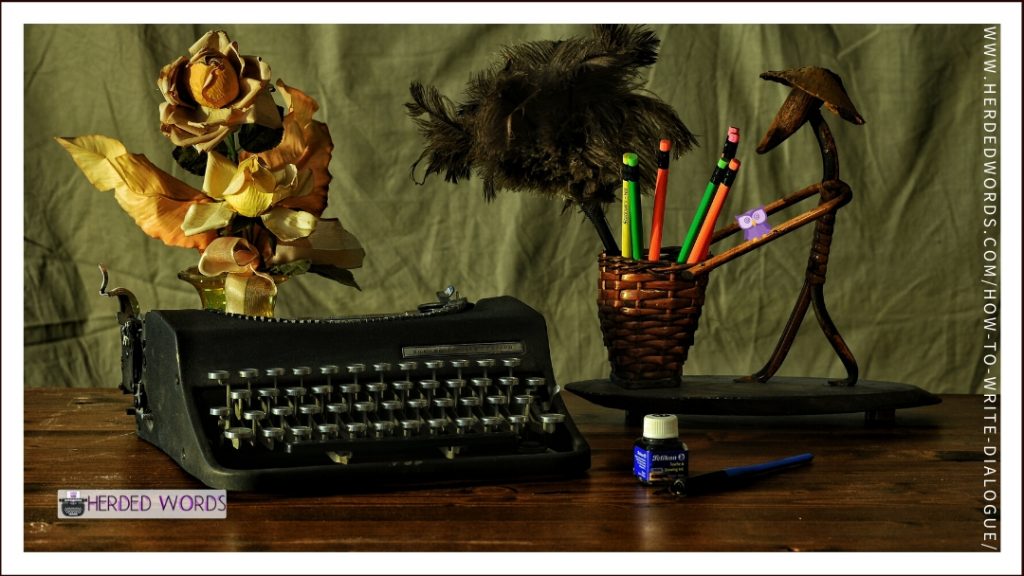
Writing Practice
It’s your turn. The only way you’re going to get better at dialogue is to practice!
Exercise: Analyze More Novels
Choose some of your favorite novels and some novels in the genre you want to write in (if they’re different). Open the books to a couple of random pages and analyze the dialogue you find.
- How many characters are in the passage?
- If you removed ALL names, would the characters have distinct voices?
- Make note of any small talk – what purpose does it serve?
- Is there any randomness or misdirection? What purpose does it serve?
- Read the passage aloud – does it sound realistic?
- What dialogue tags are used?
Exercise: Adapt Little Red
LITTLE-RED CAP is a short and simple fairytale with very little dialogue. It’s time to change that!
Your task: Write a new scene (or adapt an existing scene) with dialogue between at least 3 characters (aim for 400+ words).
Prompt:
What happens when both teams have been paid to lose the game?
Your task: Write several passages of dialogue, each of at least 250 words. Aim for one passage each with:
- 2 characters
- 3 characters
- 4+ characters
Like a Pro
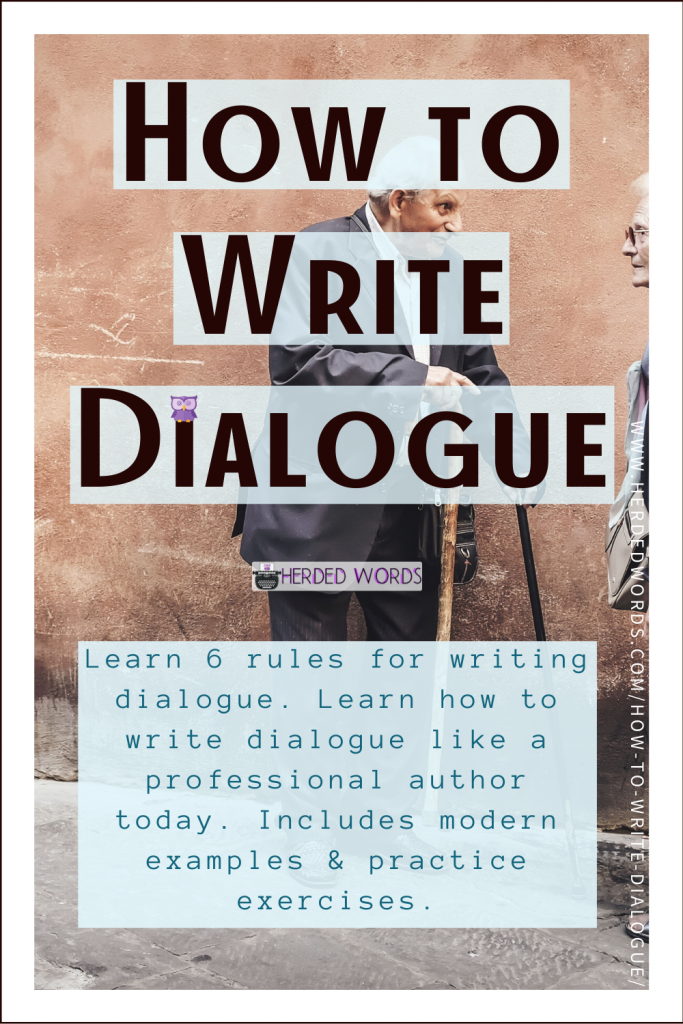
How can you start writing dialogue like a pro? Write more of it! Follow the rules and practice and you’ll be a pro at dialogue in no time.
Dialogue is about more than just people talking. You also need to let your reader know who’s doing the talking. Check out the Complete Guide to Dialogue Tags next.
Like this post? Please PIN IT and follow me on social media. Thanks!
